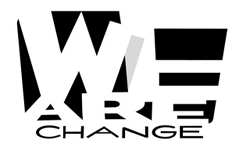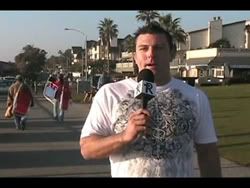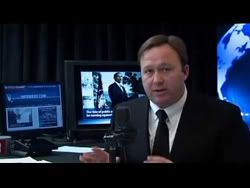G20 law gives police sweeping powers to arrest people
The province has secretly passed an unprecedented regulation that empowers police to arrest anyone near the G20 security zone who refuses to identify themselves or agree to a police search.
A 32-year-old man has already been arrested under the new regulation, which was quietly passed by the provincial cabinet on June 2.
The regulation was made under Ontario’s Public Works Protection Act and was not debated in the Legislature. According to a provincial spokesperson, the cabinet action came in response to an “extraordinary request” by Toronto Police Chief Bill Blair, who wanted additional policing powers shortly after learning the G20 was coming to Toronto.
The regulation kicked in Monday and will expire June 28, the day after the summit ends. While the new regulation appeared without notice on the province’s e-Laws online database last week, it won’t be officially published in The Ontario Gazette until July 3 — one week after the regulation expires.
“It’s just unbelievable you would have this kind of abuse of power where the cabinet can create this offence without having it debated in the Legislature,” said Howard Morton, the lawyer representing Dave Vasey, who was arrested Thursday under the sweeping new police powers.
“It was just done surreptitiously, like a mushroom growing under a rock at night.”
According to the new regulation, “guards” appointed under the act can arrest anyone who, in specific areas, comes within five metres of the security zone.
Within those areas, police can demand identification from anyone coming within five metres of the fence perimeter and search them. If they refuse, they face arrest. Anyone convicted under the regulation could also face up to two months in jail or a $500 maximum fine.
“It reminds me a little bit of the War Measures Act,” said lawyer Nathalie Des Rosiers of the new regulation. Des Rosiers is a lawyer with the Canadian Civil Liberties Association, which has been working to monitor arrests during the summit. “This is highly unusual to have this declaration done by order-in-council without many people knowing about it.”
Des Rosiers learned of the regulation Thursday afternoon, shortly after Vasey was arrested while standing near the security fence.
Vasey said he was exploring the G20 security perimeter with a friend when they were stopped by police and asked for identification. Vasey says he had also been searched by police the night before.
According to Vasey, police explained there was a bylaw in place obligating him to provide identification but he refused, acting on the advice of a “Know Your Rights” information pamphlet given to him by the Toronto Community Mobilization Network, a group assisting protesters.
The York University master’s student was taken into custody at around 4 p.m. He was brought to the Eastern Ave. detention centre, a former movie studio that has been temporarily converted into a prisoner holding pen. According to his charge sheet, he was charged with refusing to comply with a peace officer under the act.
Vasey said he only learned of the new regulation after his release, at around 9 p.m. The summit’s Integrated Security Unit did not respond to interview requests from the Star.
According to Vasey’s lawyer, neither he nor his colleagues at the law union were aware of this draconian new regulation. Des Rosiers said the CCLA and protesters have met with summit officials on several occasions and the regulation was never mentioned.
“They don’t even have signs up saying you can’t be within five metres or you’re subject to the following,” Morton said. “If they really wanted to keep the peace, they would have announced the regulation.”
According to Laura Blondeau, an aide to Community Safety Minister Rick Bartolucci, the regulation “ensures that police have the legal authority” they need for such a massive security zone.
“They really wanted to ensure they could provide a certain level of security,” Blondeau said Thursday. “The regulation does not include private residences or businesses. It’s for certain streets and sidewalks in the security perimeter.”
Blondeau said “rightly or wrongly,” the new regulation can be compared with airport security.
“You don’t have to get on that plane if you don’t want to be searched and wanded,” she said, adding that Bartolucci carefully weighed public safety and civil liberty concerns before agreeing to the one-time amendment.
“It was an extraordinary request. This is just for Toronto, just for the G20,” she said. “Given the environment that the police were expecting, they needed to be prepared.”
Blondeau emphasized the law only affects those trying to enter the security zone and applies solely to police officers, not to private security guards contracted for the summit.
If someone declines to comply it empowers the police to turn them away — or face being searched.
According to government lawyers, the regulation was passed by cabinet using what is known as a “covering” order-in-council.
“The authority for the regulation is contained in the PWPA (Public Works Protection Act). The PWPA authorizes the designation by cabinet of places as ‘public works,’” the lawyers said.
The Public Works Protection Act was created in 1990 and defines a “public work” as everything from a railway to a bridge or a provincial building. The act says any other building, place or work can also be “designated a public work by the Lieutenant Governor in Council.”
Morton said he’s unaware of any precedents to such a regulation being passed in Ontario and questions if it is even constitutional.
Des Rosiers said the regulation runs contrary to the Charter of Rights because it prohibits people from generally circulating on public land.
The G20 security fence has been a magnet for passersby and protesters alike, with many people approaching to take pictures or just quench their curiosity.
For Des Rosiers, she is especially worried because most people, including protesters, will operate under the assumption they have a right to refuse handing over identification to police.
“Protesters would have been told that the law of the land is that you don’t have to talk to police officers if you don’t want to,” she said. “This changes things because even if you attempt to approach, it gives the power to the guard to demand identification.
“It’s a significant intrusion on people’s rights.”
Source




Currently have 0 comments: